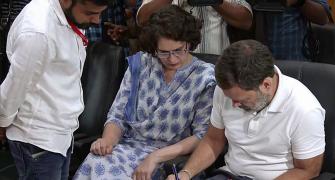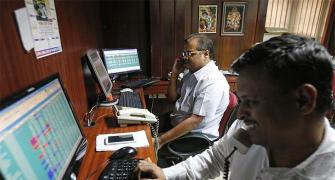India can bring 580 million people above the 'empowerment line,' a measure of income deprivation, by 2022 if it implements inclusive reforms, according to McKinsey Global Institute (MGI). The business and economics research arm of consultancy major McKinsey & Company also said India's human development indicators show that deprivation extends well beyond the 22 per cent of Indians who live below the official poverty line.
The business and economics research arm of consultancy major McKinsey & Company also said India's human development indicators show that deprivation extends well beyond the 22 per cent of Indians who live below the official poverty line.
"The path of inclusive reforms envisages a far more positive alternative, one in which the nation takes steps to stimulate investment, job creation and farm production, as well as dramatically improve the delivery of basic services. These reforms could potentially allow India to achieve an average GDP growth rate of 7.8 per cent between 2012 and 2022.”
"This could lift 580 million people above the empowerment line, leaving 100 million (7 per cent of the population) below it in 2022 and 17 million (1 per cent) below the official poverty line - virtually eliminating extreme poverty in just a decade," MGI said in a report titled 'From Poverty to Empowerment:
According to MGI, the 'empowerment line' is "a new and more holistic measure of income deprivation."
It is an estimate of the minimum economic cost for a household to fulfil eight basic needs: food, energy, housing, drinking water, sanitation, health care, education and social security.
MGI estimates India's empowerment line at Rs 1,336 per capita per month, or almost Rs 6,700 for a family of five per month, after taking into account the value of government spending on basic services that already reach the people.
The report noted that the higher GDP growth inherent in the inclusive reforms scenario generates more tax revenue that can be ploughed back into spending for basic services.
The combination of higher investment, faster economic growth and increased tax revenue could allow India to bring its fiscal deficit to 6 per cent of GDP from 2017 onward.
The report says 40 per cent of India's children under the age of 3 suffer from malnutrition and 50 per cent of its households have no access to improved sanitation facilities.









